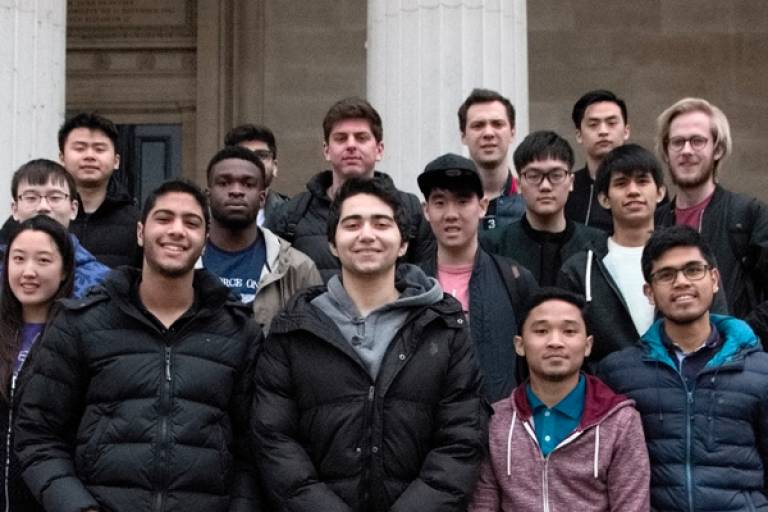Disability initiative Project Impactive applies student skills to real-word solutions
2 December 2019
With 46 full-time student volunteers, 10 of which are Biomedical Engineering students, Project Impactive is the perfect initiative for students to apply their skills to real-world problems of people living with disabilities.

Project Impactive’s Ala’a Sukhera describes the scope of the student-led initiative, the kind of projects students are working on, and what drives the students who take part in its efforts. Five of its 21 engineers are Biomedical Engineering students, while two of the Engineering Team leaders are Biomedical Engineering students. Within the core committee, the initiative’s Operations Executive, Social Director, and BME liaisons are all Biomedical Engineering students — making up around 10 of our 46 full-time student volunteers in total.
Project Impactive is a non-profit engineering organisation that works in collaboration with Students’ Union UCL, to transform the field of disabilities. In partnership with their clients, the volunteer engineering teams create customised equipment to ensure the best possible outcomes in managing the daily obstacles that disabled individuals face. The project name stems from its desire to have an impact on disabled people’s lives.
Project Impactive is running seven different projects at the time of writing, and aims to run a total of 18 projects this academic year 2019/2020. One of these projects is the design of a fully functional gaming controller that can be operated with one hand. Games such as FIFA, GTA and Fortnite traditionally require controllers that use two hands, limiting certain disabled persons from playing. The engineers have taken up the job of creating a gaming controller that contains all the necessary buttons for a player with use of only one hand.
The diligent team of two electrical engineers and a technical team leader meet weekly to discuss ideas and work on the project. In the first few weeks, they generated concepts for the controller and discussed design ideas. Then, the team visited GAME and CEX, both stores specialising in gaming equipment. The team consulted staff about their designs and asked for feedback on which of their concepts would be most suitable and effective for disabled gamers.
The team decided the working principle of their design would be inspired by the functionality of a computer mouse. All five fingers of one hand would be engaged to use the controller. The team are moving into the manufacturing phase now as the design is complete and they have confirmed which model they are going to build.
Team leader Jun Gan emphasised that this project is something his team does because it is “the right thing to do”, enabling disabled individuals to have more access to an activity as commonplace as gaming. He stressed that this type of project is the essence of what engineering and technology are to him, being creative in developing innovative services to help people.
Another project currently being developed within Project Impactive is the ‘universal’ cupholder, that can be used with existing wheelchairs. This project, along with the game controller, is running in collaboration with MERU, a company that designs products for disabled people to help them improve their living standards. Although clip-on cupholders for wheelchairs do exist in the market, MERU ‘challenged’ this particular group to design a versatile one that maintains the same level of stability and security as non-flexible cupholders.
This team consists of two chemical engineers and one civil engineer, who gained some inspiration from existing products and then came up with a concept. Later, they sketched this out. In this process MERU provided guidance on how they should frame the design. The team also conferred with lecturers and a senior teaching fellow from the Department of Mechanical Engineering, who offered feedback and support on their concepts.
The first design idea the team developed made use of a gear system, which would allow adjustability, but time restrictions prevented them pursuing this option further. The team regrouped and redrafted, focussing on simplicity and seeking guidance from CAD mentors for their 3D design. They used their individual efforts to overcome the difficulties of designing within a program they were not accustomed to, persevering and gaining new skills in the process. This team is striving for a final design that is functional and efficient, whilst they juggle university and their various other responsibilities.
Project Impactive is striving to overcome restrictions in daily life for disabled people that are often taken for granted by society. The project has nearly 60 passionate volunteers who are determined to make even the smallest difference in the lives of others, and these projects are just the start.
If you would like to know about volunteering opportunities, please follow Project Impactive’s Facebook page for the latest updates!
Ala’a Sukhera is a Writer at Project Impactive and currently in her 2nd year at King’s College London studying for a BA in War Studies.
 Close
Close

